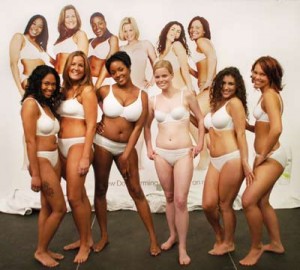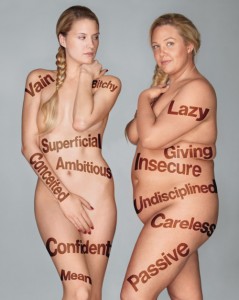I've been thinking about bodies, weight, and insecurities a lot lately. I was somewhat shocked when my last blog post ("The Judgment of Weight") skyrocketed to first place as the most read blog on this site.
In hindsight, I shouldn't have been surprised as it hasn't gone unnoticed by me that nearly every woman's magazine puts the word fat or weight on their cover every single month. Clearly the subject sells.
And I know why. We all want to be "acceptable." Every single one of us goes through this journey called life trying, in our own ways, to "be enough," "prove valuable," and "feel loved." So certainly it would matter if we're told that there is something "wrong" with us. Especially something so obvious to everyone else.
It's not my intention or training to talk about weight specifically-- whether we need to gain or lose, how to do it, why it's hard, or how it's affecting our health and longevity. But from a relational perspective-- the judgment we have surrounding this issue has to keep being addressed. It's affecting all of us.
Your Weight Bothers Me
In some ways it doesn't seem to matter how public Oprah is about accepting her weight, how many Dove campaigns go viral, how many "over-weight" celebrities provide new role models, or how many more articles we read that emphasize health over weight-- we are still showing up with such deep judgments.

Less than half of the 1800 women who took the survey chose "neither" as their answer when asked to choose from pairs of words like ambitious or lazy to describe a woman they knew nothing about except that she was “overweight” or “thin.” (And in that particular question we were 11 times more willing to peg that imaginary woman as lazy!)
With two-thirds of Americans being overweight or obese you'd think we'd be more compassionate since the chances are high that if we're not personally in this category that someone we know and love is. Ironic also that most of us claim we want to lose weight while simultaneously judging thin women as being superficial, mean, and controlling. If we believed that, why would we want to become that?
Those judgments are hurting us. Personally.
Not just because we risk dismissing potential friends because of our prejudice, though that's a strong reason to practice befriending those whose body types are different from ours. But because we damage our own psyches when we judge others.
The judgments we are putting out there are the same judgments that are coming back and biting us in our ass--be it flat or plump. We think we might feel better if we devalue others, but when we do, we are reinforcing the same judgments that we'll hold against ourselves. We're putting energy out there that becomes our own critic, our own slave master, our own prison.
We cannot judge without feeling judged. It's impossible. If we make the judgment about her, we're telling our brain that this belief is true to us. Which means that same brain will give us that message about ourselves.
What we say about others reveals way more about our own story than it does about theirs. We are reacting to them from our own insecurities, fears, and doubts.
When we can't accept them it reveals that we can't accept ourselves. The two go hand-in-hand.
Getting Naked Literally and Figuratively
I felt a moment of that truth last week when a friend took me to a Korean style spa--a bathhouse where you wear the same thing you would if you were taking a bath at home. Ha!
The first two minutes are the worst. Not used to disrobing in front of strangers (or my girlfriends who were with me, for that matter!) it does feel very vulnerable.
And then, it doesn't. Seriously.
A swimsuit just gives the illusion of being covered. Without it comes a freedom: No sucking anything in, no pulling anything down, no adjusting anything, no worrying if it is in style, or flattering, or appropriate. There was simply nothing to hide behind, nothing to judge, nothing to worry about keeping in place.
When we risk showing our scars, birthmarks, cellulite, rolls of fat, protruding bones, tan lines, faces without make-up, boobs without push-up bras, and wet hair-- we realize we're all way more alike than we seem to remember when covered with clothing.
To see one woman walk by with only a scar where a breast used to be--I was reminded how grateful I am for life. To see one woman sitting on the edge of the jacuzzi with rolls of fat around her middle-- I found myself cheering for her courage, grateful for her acceptance, challenging myself to accept who I am, too.
As I accepted all the bodies around me for just what they were, letting go of any need to judge those who were willing to be vulnerable in the same space with me, a self-acceptance washed over me.
I felt beautiful even as I gazed at the parts of my body that can sometimes cause me shame. I didn't feel it then. I completely and totally accepted myself, even as my chest flattened when I laid on my back. Oh that we all had more moments where we could be that relaxed and at peace.
When I stopped judging those around me, I found it easier to give the gift to myself.
Or maybe it was when I first disrobed, proving I was willing to accept myself that I was able to accept all of them.
I don't know which came first. But I do know the two went hand-in-hand.





